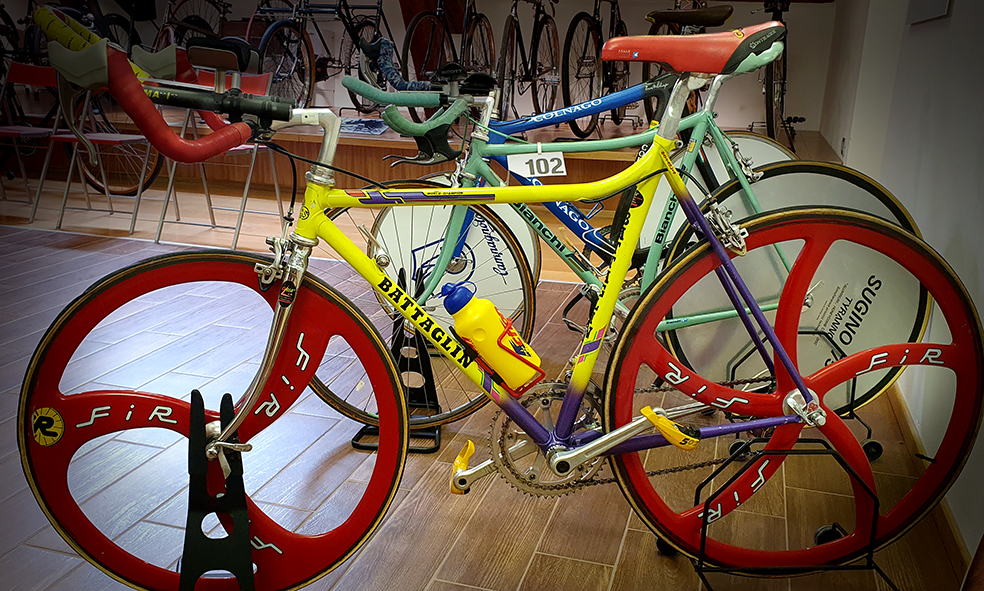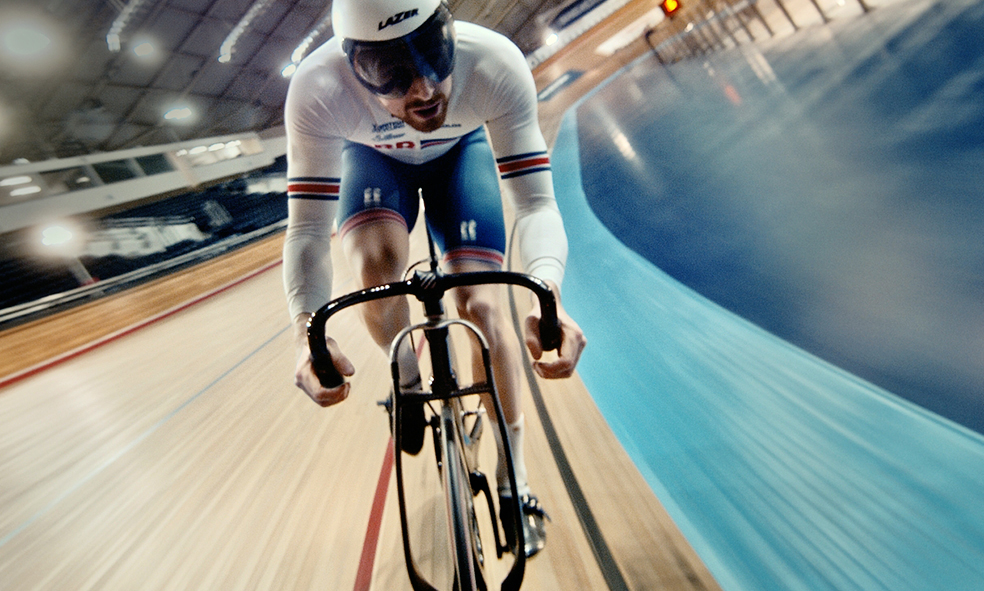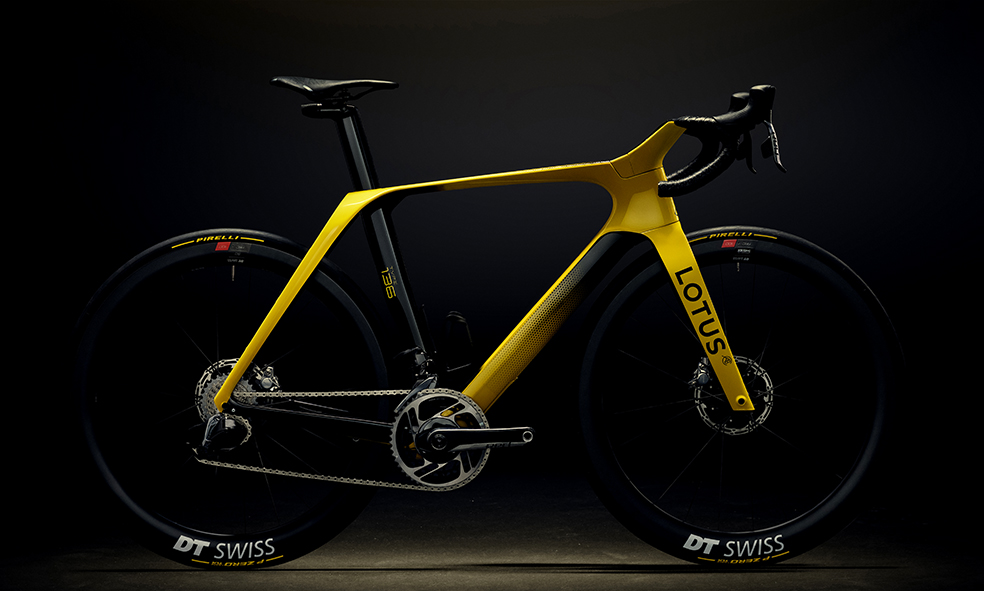Bicycle Aerodynamics can pull you up a hill and get you down faster. The experts at Flanders Bike Valley Wind Tunnel share the secrets of ‘The Higgs boson collider’ of bike set-up.
By Sam Clark
Top-Tips by Harm Ubbens, Flanders Bike Valley Project Manager
3 Top Tips for Better Aerodynamics from the Wind Expert, Harm
1 – Keep your elbows tucked in
This will naturally make you roll your shoulders in, then keep your head down to create a nice streamlined body shape.
2 – Wear tight clothing
Even an unzipped jersey will increase drag. Although this may be irrelevant if you keel over from overheating, so one of the side projects they are developing at the Bike Valley is clothing with integrated cooling technology.
3 – Don’t wear gloves
Surprisingly, you can gain 6 to 8 Watts by taking off your gloves. As they say, every marginal gain adds up. But this is really a pretty small gain. It might be something for the pros to consider, but will it really make much difference in the dash to the café with your mates? Probably not, but it will give you something to discuss over the espresso.
A Fast History
Bicycle Aerodynamics swept onto the world stage at the 1992 Barcelona Olympics. Chris Boardman won gold in the 4000m pursuit, setting a new world record in the process. Boardman was a gifted cyclist, but this achievement is probably mostly remembered for his bike, the ultra-sleek Lotus Type 108.
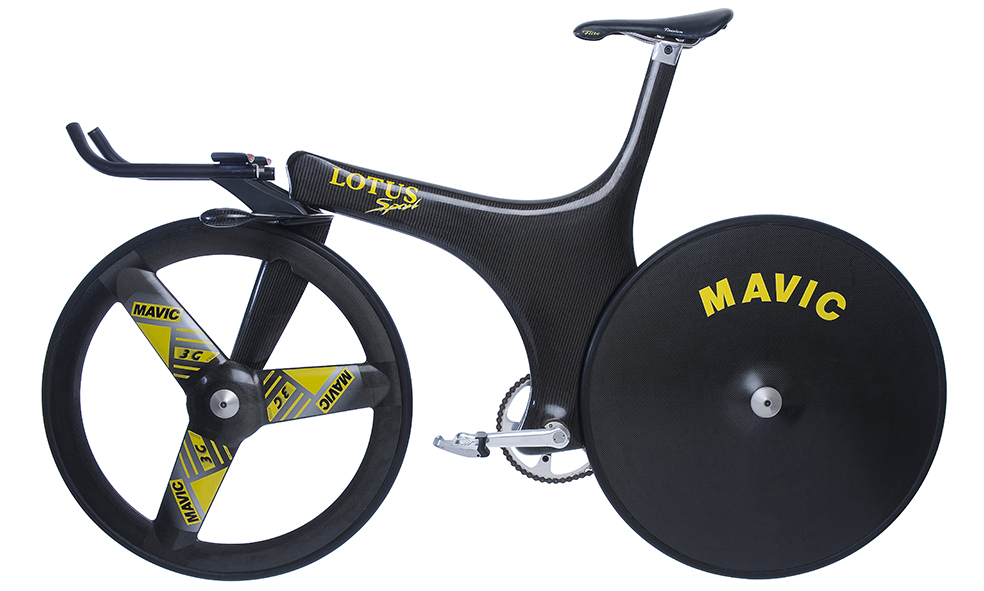
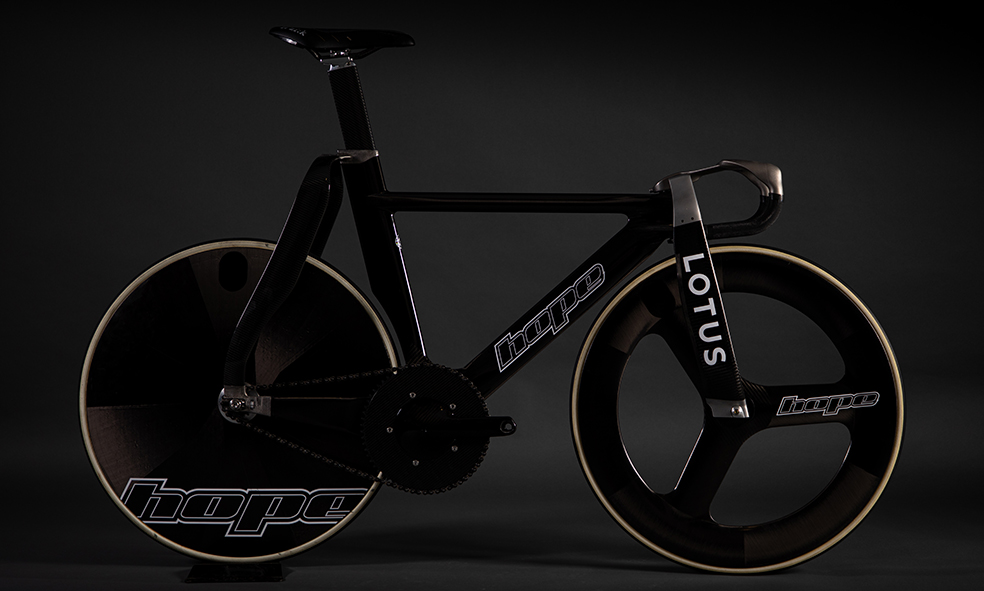
Modern racing bikes are exquisite, highly refined examples of technical engineering. Geometry has been refined, and components like breaks are sculpted seamlessly into frames, making current pro bikes easily over 20% more aerodynamic than the veteran, round tube steel bicycles. We know this because people like Harm Ubbens carefully test how air flows around them. Harm is Project Manager at the Flanders Bike Valley wind tunnel, a 50-meter-long blast of scientific air.
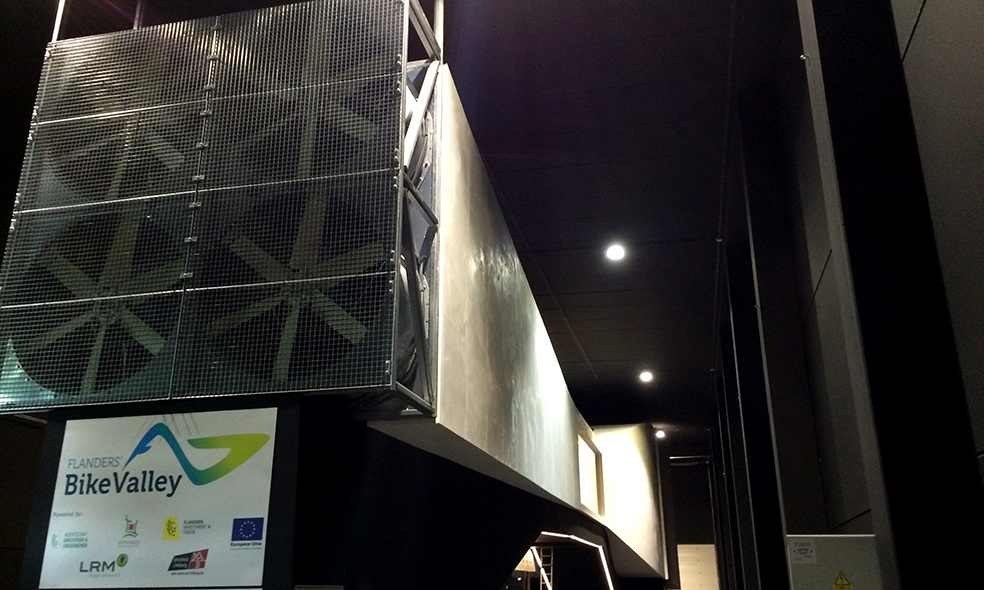
The Flanders Bike Valley wind tunnel in the west of Belgium is unique in that it is specially built to study cycling aerodynamics and wide enough to stage several riders together. The differences can be measured between a solo breakaway and the relenting surge of the chasing peloton. Realistic effects can be measured, like the positioning of slipstreaming, right down to the rotation of the spokes in the wheels.
Anyone who has watched the Tour de France or tucked in behind their mate cycling up a hill will know about the benefits of slipstreaming another rider. Studies at the Flanders wind tunnel show how subtle adjustments to the bike and the rider’s body position can maximise performance.
Why is spraying oil better than blowing smoke?
Aerodynamic air flows were commonly observed using smoke. But smoke particles are, relatively speaking, quite large and have a tendency to follow their own path, so for precise results, the Flanders wind tunnel sprays a fine mist of micro oil droplets into the tunnel and tracks their movement in the wind with lasers.
From the Podium to your Local
If you want to slip through the air like a hot knife through butter, you can book a session at the Flanders Bike Valley. They can set up your bike with laser accuracy and test your body’s performance to within an ounce of breath. For around £500 you can have a session in the wind tunnel. Harm and his colleagues will shape you into a Formula 1 racing machine, just like the pros. He recommends a good bike fit first, then he makes aerodynamic refinements to this, being careful not to alter the carefully positioned saddle height, which could result in an injury. On a first visit, Harm typically expects to increase power output by 20 watts by carefully honing the rider position. A second session focusing on riding style, clothing, etc., can significantly improve on this.
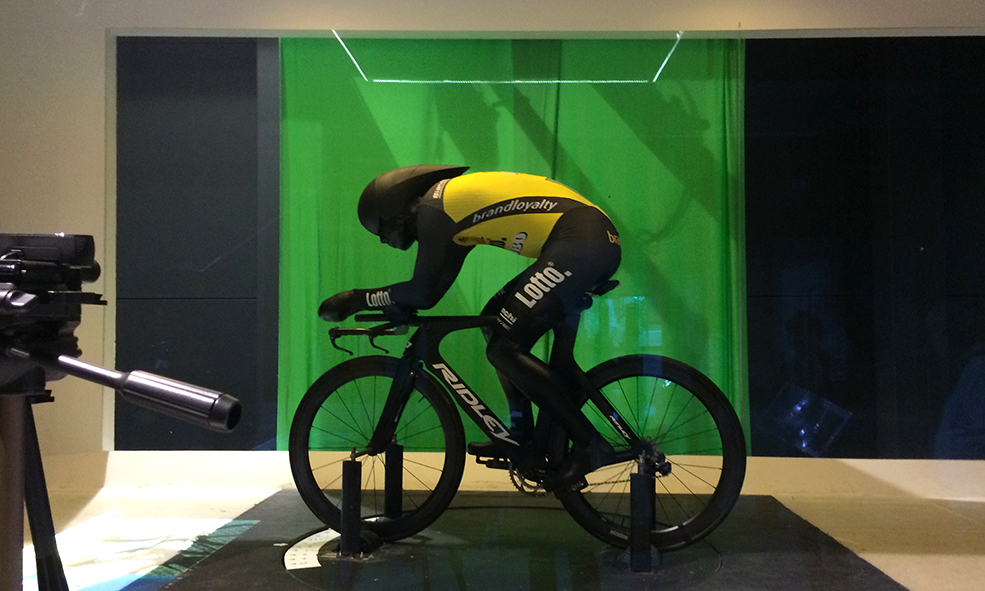
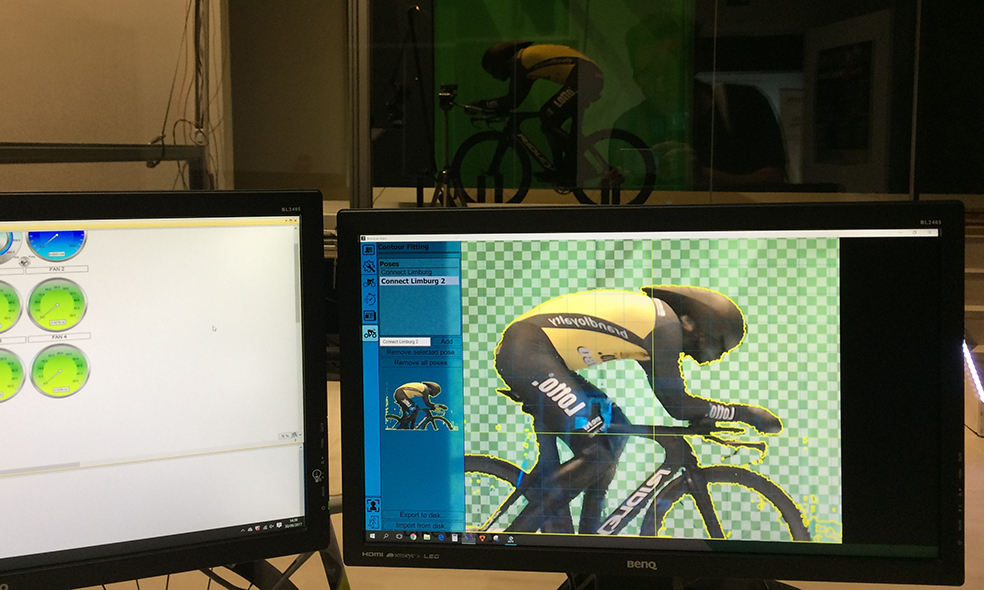
A Windy Alternative to a Bouncy Castle?
Although designed primarily for cycling, the wide payload and a maximum wind speed of 108km/h means aerodynamic experiments can be carried out on all sorts of things, such as skiers and bobsleighs. While showing us around, Harm generously allowed us into the giant hair dryer and cranked it up to a blustery 50 km/h. I asked about the possibility of children’s parties, but apparently, this really is a highly sensitive piece of advanced technical equipment, and not a big toy.
Wax Off or Leave On?
One of Harms’s next studies is to look carefully at riders’ legs. He hopes his experiments will answer the age-old cycling quandary: should I wax my legs? Harms noticed air flowing over the upper arm is broken so it moves away from the arm and reforms smoothly behind it, creating very little drag. Hairs on the arms may cause or aid this slight disruption to the airflow. It remains to be seen if the cycling preference for sleek-shaven legs has, maybe, just been a fashion that’s actually holding us back.
Enquiries:
www.bikevalley.be
Title image of Great Britain Cycling Team sprint rider, Joe Trumam, training on his Hope-Lotus bike, Lotus Type 108 and Hop/Lotus track bike images courtesy of Lotus Cars.
Flanders Bike Valley Wind Tunnel photos by Sam Clark
Find many less aerodynamic bicycles in the wonderful Bicycle Museum of Cesiomaggiore, Italy. Museo Storico della Bicicletta.
